Rattlers Lead the Way in Addressing Global Environmental Challenges at Nexus Summit
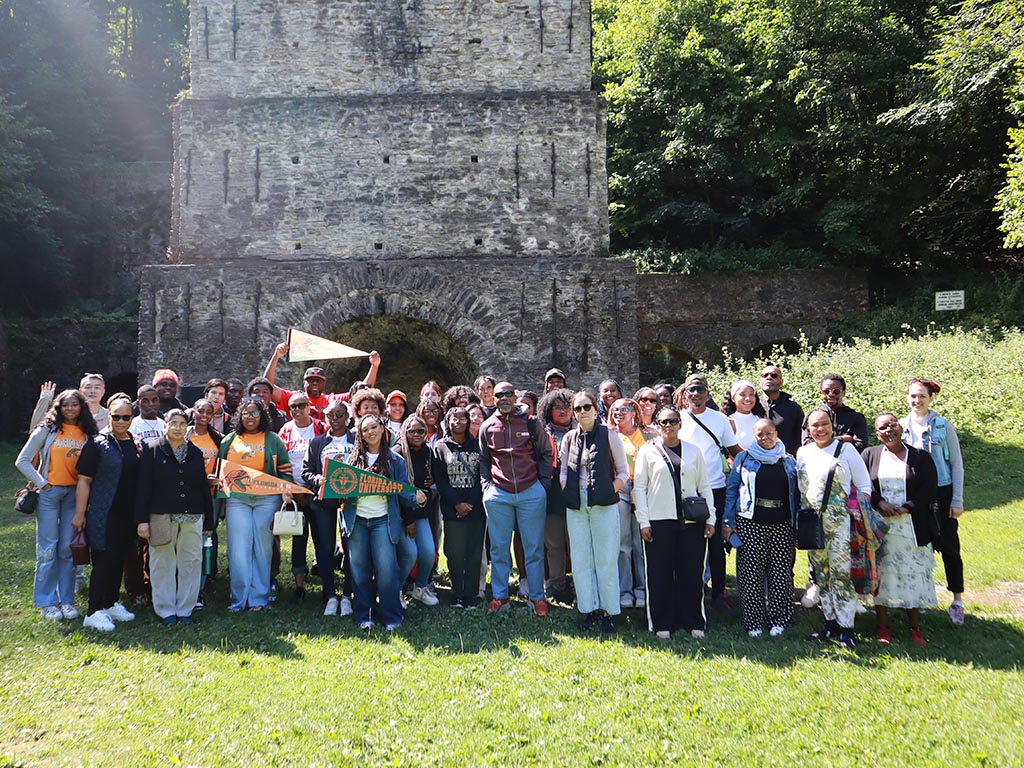
TALLAHASSEE, Fla. — Florida A&M University (FAMU) students and faculty recently attended the annual Nexus Energy, Water, and Food Summit in Hungary, joining global leaders to address pressing environmental challenges.
The summit, founded in 2015 by Victor Ibeanusi, Ph.D., Dh.c. (honoris causa), Dean of the School of the Environment at FAMU, has become a premier platform for international collaboration. It attracts participants from the United States, Europe, Africa, Asia, and Latin America. Previous summits were held in South Africa, with upcoming events planned for Latin America and Asia.
“This is not a conference; it is a summit with tangible outcomes,” Ibeanusi said. “We are training the next generation of leaders to address environmental issues on a global scale.”
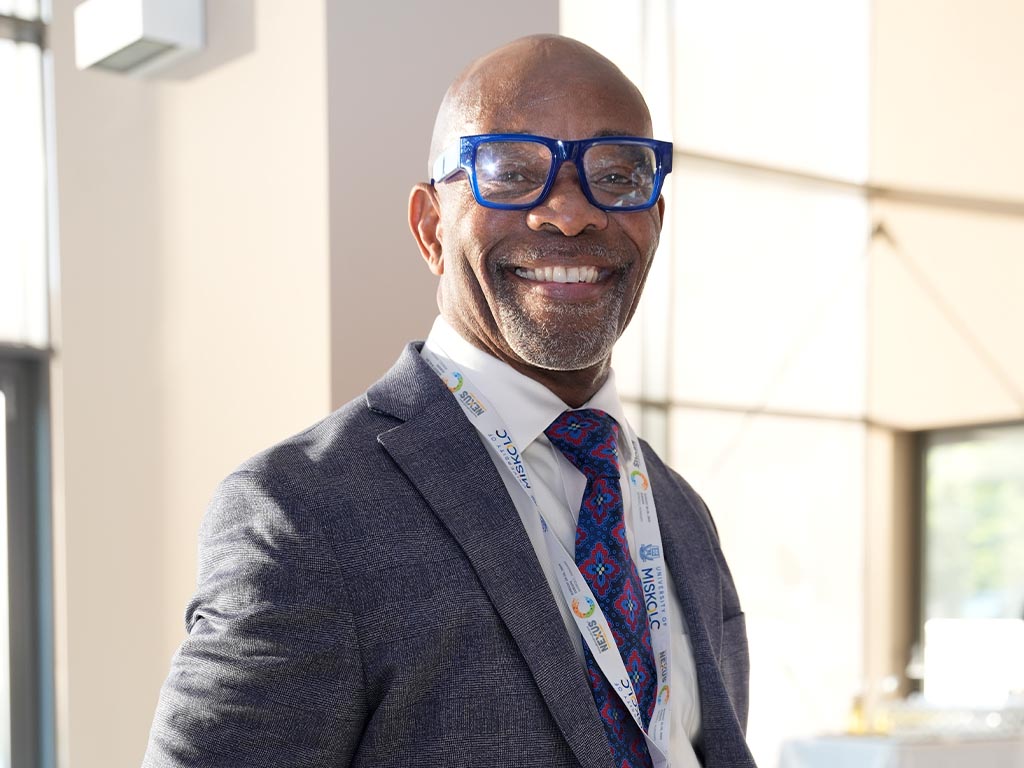 Leading with vision — Victor Ibeanusi, Ph.D., Dh.c. (honoris causa), Dean of the School
of the Environment at FAMU. (Photo Courtesy: Ernest Nelfrard)
Leading with vision — Victor Ibeanusi, Ph.D., Dh.c. (honoris causa), Dean of the School
of the Environment at FAMU. (Photo Courtesy: Ernest Nelfrard)
The Hungary summit included delegations from Germany, Hungary, the Chinese Academy of Sciences, and others. Students served as “Nexus note takers,” documenting sessions, taking photographs, and highlighting key discussions. Their involvement provided firsthand exposure to global research on water quality, food security, big data, artificial intelligence, and the circular economy—nine focus areas identified by the summit.
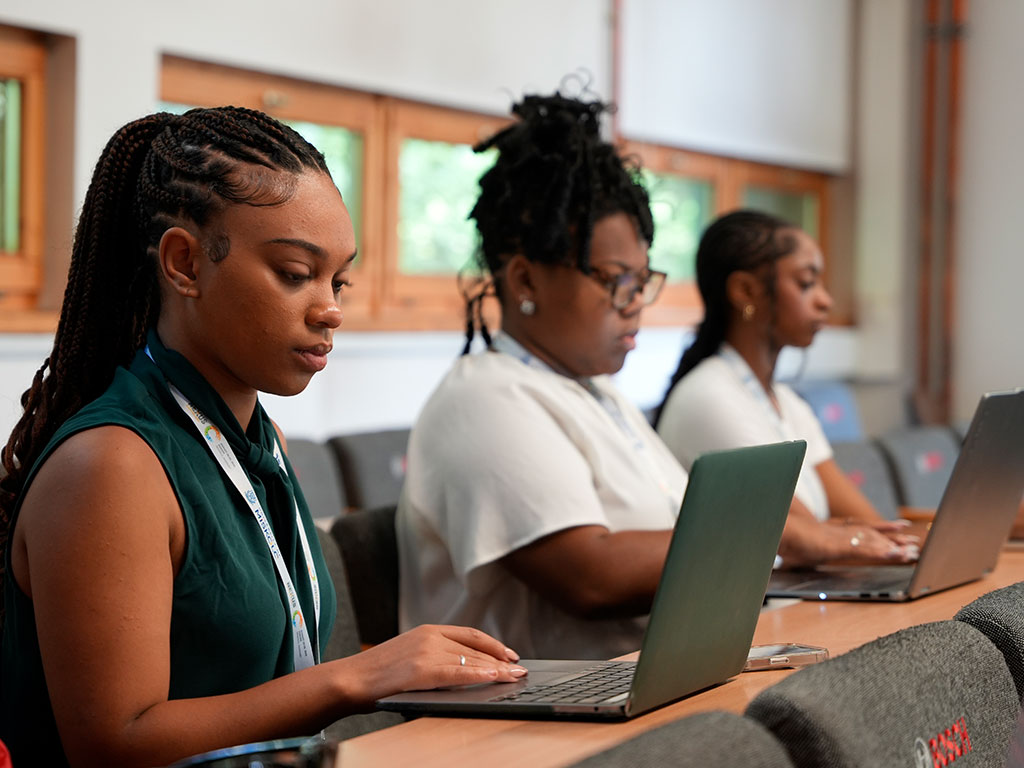 The “Nexus Note Takers” — students turned reporters, photographers, and storytellers
capturing every moment of the summit! (Photo Courtesy: Ernest Nelfrard)
The “Nexus Note Takers” — students turned reporters, photographers, and storytellers
capturing every moment of the summit! (Photo Courtesy: Ernest Nelfrard)
Student Perspectives
For students, the experience was both personal and academic.
“What impacted me most was the company I was with,” said Yerimiah Evans, a political science major from Orlando and member of the Class of 2028. “Throughout our travels, we encountered new cultures and customs, but they always kept me grounded.”
Evans noted that the summit influenced his career goals, which are rooted in Florida politics and nonprofit work. “This trip reminded me of the variety of people I wish to one day serve,” he said. “People come from all around the world, and this trip to Hungary gave me a fresh perspective on a new culture I want to uplift.”
His advice to fellow students was straightforward: “Take it. Don’t think about it too much; just do it. Even if you regret it or don’t end up enjoying it, it will be an experience you will never forget.”
Global Focus Areas
At the Hungary summit, the delegations from Germany, Hungary, and the Chinese Academy of Sciences joined FAMU in examining pressing issues across nine thematic tracks. Students served as “Nexus note takers,” capturing session discussions, photographs, and key takeaways while being introduced to the breadth of global research.
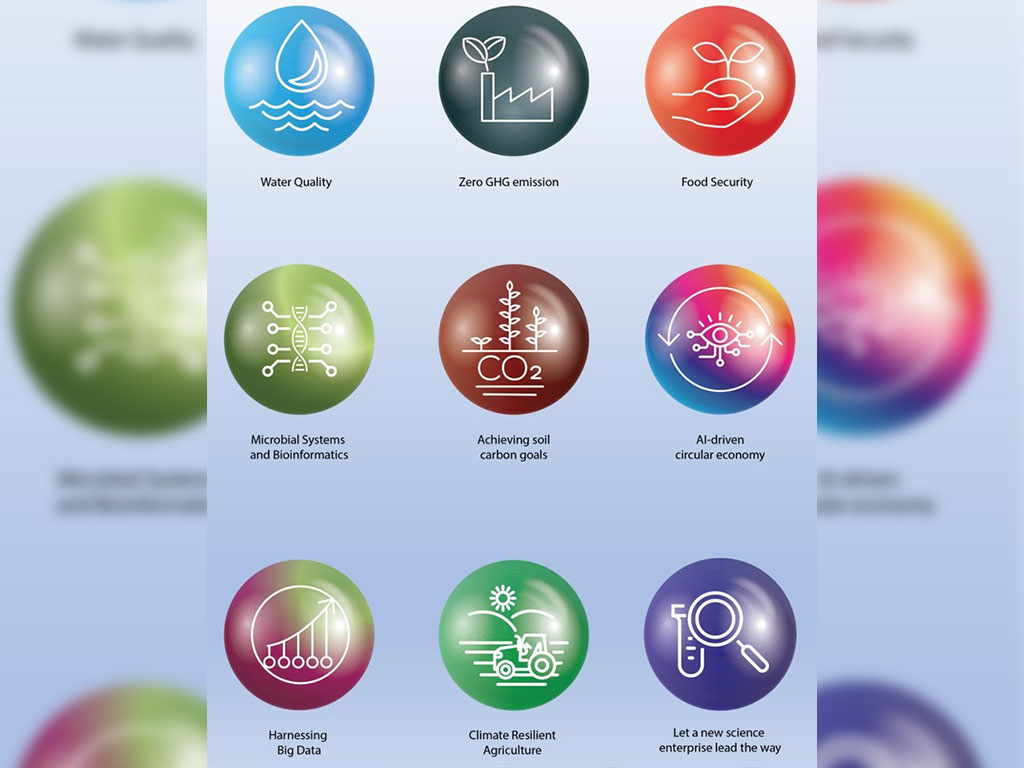 Nine powerful tracks. One united mission. The Nexus Summit is driving bold ideas for
a sustainable tomorrow. (Photo Courtesy of FAMU)
Nine powerful tracks. One united mission. The Nexus Summit is driving bold ideas for
a sustainable tomorrow. (Photo Courtesy of FAMU)
The tracks included:
- Water Quality: Focuses on monitoring, maintaining, and improving the health of water bodies by addressing pollutants, ensuring safe drinking water, protecting aquatic ecosystems, and sustaining water resources.
- Zero GHG Emissions: Strives toward eliminating or offsetting human-made greenhouse gas emissions (CO₂, CH₄, N₂O, etc.) through transitions to renewables, improved efficiency, carbon capture, and sustainable land use.
- Food Security: Aims at ensuring access to sufficient, safe, and nutritious food while balancing the environmental impacts of food production (water use, GHG, biodiversity).
- Microbial Systems and Bioinformatics: Explores how microorganisms (soil, water, plant, human microbiomes) and computational methods (sequencing, data analytics) can be used for environmental remediation, agriculture, health, and ecosystem understanding.
- Achieving Soil Carbon Goals: Concerned with managing soils to enhance carbon sequestration, restoring degraded lands, improving soil health, and integrating land-use practices that lock carbon into ecosystems.
- AI-Driven Circular Economy: Applies artificial intelligence and automation to optimize resource reuse, recycling, material loops, waste reduction, and sustainable product lifecycles in a closed-loop economic system.
- Harnessing Big Data: Uses large environmental datasets (climate, biodiversity, water, remote sensing, sensor networks) with tools like GIS, machine learning, and modeling to predict trends, guide policy, and manage resources.
- Climate Resilient Agriculture: Focuses on strategies and technologies that enable farming systems to withstand shifting climate conditions, such as resilient crop varieties, water management, early warning systems, and adaptive practices.
- “Let a New Science Enterprise Lead the Way:” An overarching theme promoting interdisciplinary, frontier science, open innovation, and novel methodologies to preempt and solve emerging environmental challenges.
For students, these tracks provided a global perspective on how science and policy intersect. The exposure gave them a framework for thinking about solutions that can be applied both abroad and at home in Florida.
Cultural Exchange
Beyond research, the experience also included cultural immersion. Students stayed in dormitories at the University of Miskolc, mingling with peers and gaining unique cross-cultural perspectives. For many local students, it was their first time engaging with African American students, creating a two-way exchange of cultural learning and connection.
The itinerary also included visits to a historic iron smelting site, wine country in northern Hungary, and the capital city of Budapest. These experiences broadened the students’ understanding of the nation’s culture and industries, adding depth to their academic work.
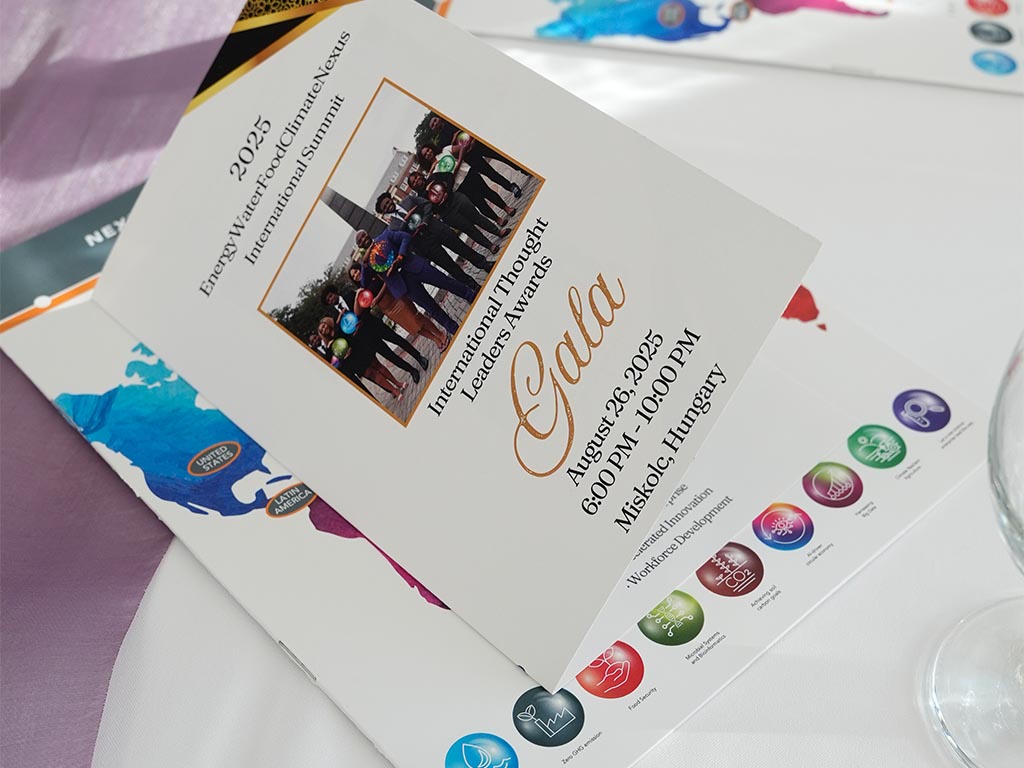
Capturing the spirit of collaboration at the Nexus Summit, where vision meets action for global solutions. (Photo Courtesy: Ernest Nelfrard)
Support and Recognition
The trip was made possible through support from industry sponsors, including Dow Chemical Company and Duke Energy. While the U.S. Department of Energy funds research for the Nexus program, private partners provided resources to cover international travel and logistics.
“This is a life-changing experience for our students,” said Joel Blount Jr., coordinator of Academic Programs in the School of the Environment, who traveled with the group. “Study abroad opportunities give them a global perspective and help prepare them to enter a workforce that is more interconnected than ever.”
The 2025 Nexus Global Thought Leaders Awards were also presented during the summit to several distinguished researchers:
- Attila Havas, Ph.D., senior research fellow at the University of Debrecen, for leadership in innovation and decision-making.
- Erzsébet Poór-Pócsi, environmental engineer and circular economy specialist, for work in sustainability and nature-based solutions.
- Ashutosh Sharma, Ph.D., bioengineering professor at Tecnológico de Monterrey, for contributions in biotechnology and agricultural innovation.
These honors underscore the summit’s mission to spotlight research that bridges theory and practice on a global scale.
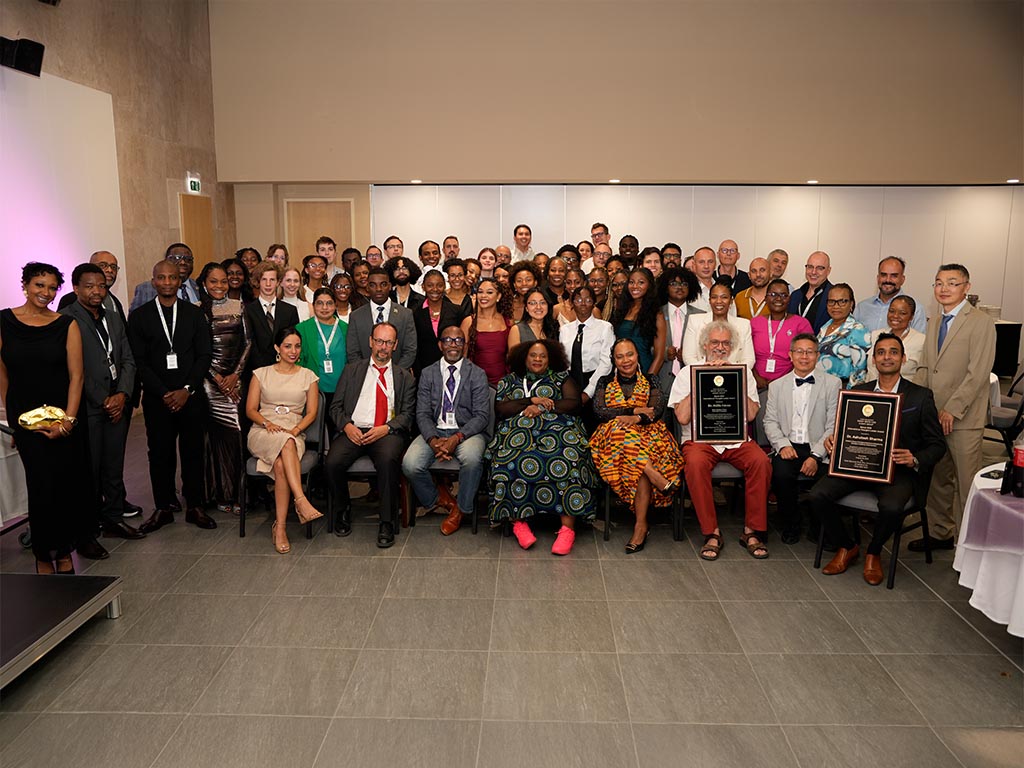 Celebrating brilliance — summit attendees and award recipients come together for a
memorable group photo! (Photo Courtesy: Ernest Nelfrard)
Celebrating brilliance — summit attendees and award recipients come together for a
memorable group photo! (Photo Courtesy: Ernest Nelfrard)
Looking Ahead
Each Nexus Summit produces a post-summit proceedings report and offers opportunities for participants to publish in the International Journal of Energy, Water, Food Nexus, a peer-reviewed journal edited by Ibeanusi. Faculty and student work from Hungary will be included in the upcoming edition.
Planning is already underway for future summits: Latin America will host the next event, followed by Asia in 2027 and Tokyo in 2028.
“Our goal is to create a new science enterprise with the potential to solve global challenges,” Ibeanusi said. “We are committed to giving our students these opportunities because they are the ones who will lead the way forward.”
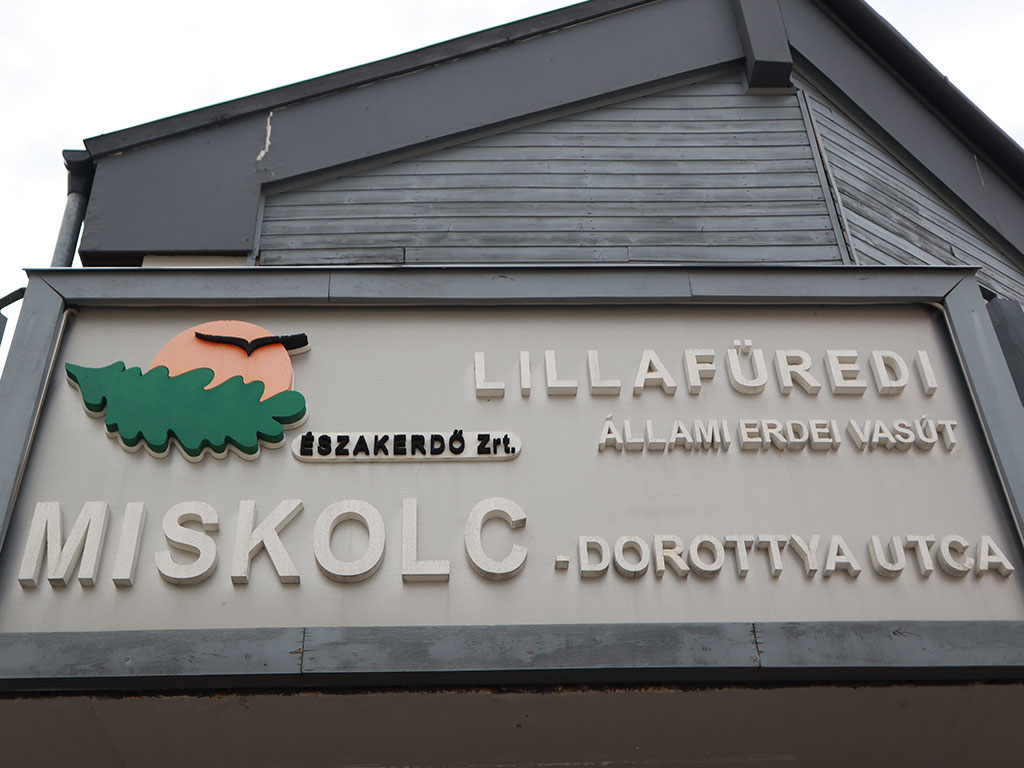
The Lillafüred Forest Railway is a narrow-gauge railway that runs through scenic forest areas near Miskolc, often used for tourism and excursions. The logo on the sign belongs to Északerdő Zrt., the forestry company that operates the line. (Photo Courtesy: Ernest Nelfrard)
Find out more by visiting the Nexus Summit site.
Media Contact:
Ashley Flete
Senior Communications Specialist
ashley1.flete@famu.edu

